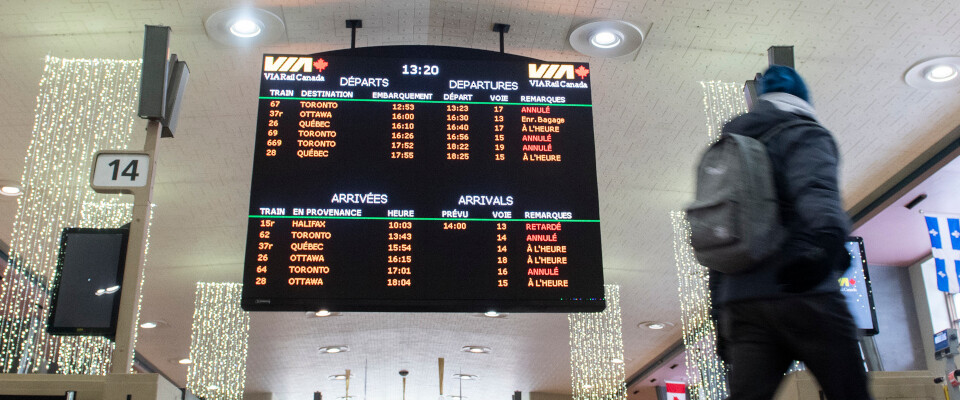Micallef's piece hit several bullseyes and reflects the current reality. Nevertheless VIA puts out a product with many positives.
- Paul
Interestingly, I didn't like Shawn's piece, for the same reason I often don't like them, he rarely bothers to interview/talk to people who matter and can influence the things about which he is complaining, and he rarely advocates for specific changes.
You could read that entire piece and largely take away:
a) Boarding at Union sucks
b) VIA needs more money
c) John Tory sucks, Union Station security sucks and homelessness is an issue in Toronto.
Swell. And what does he propose we do about it?
More money for VIA is a fine idea I'm happy to get behind, but as to the rest, here's what I would have liked to see in the column:
a) Who is responsible to get the VIA information sign at Union repaired, when will it be done?
b) Why was VIA rail's communication to the public, and to riders, particularly those aboard trains so poor? What action is being taken to ensure this does not recur?
c) VIA's boarding policy at Union, to my understanding, is largely predicated on the current narrow platforms. The intention is to widen many Union Platforms as part of the current USEP project. Will VIA change its boarding policy on corridor trains at the very least, when wide platforms become available?
d) Why can't signage be placed at end of any current VIA boarding queue to indicate what train and departure time that queue is for?
e) Did VIA not communicate its late arrival time to Union Station staff? If not, why not, what action will be taken to ensure that future communication is better? If staff were informed, why was this not passed on to security?
f) Does security at Union Station in fact have a clear protocol on late closure due to train delays?
g) Does the City in fact have any transportation policy in place for Union in the event of very late train arrivals? A full corridor train would overwhelm local uber/taxi capacity at 1:30am most nights. Can the TTC/GO scramble some buses that would at least get people closer to their destinations and/or to hubs where taxi/uber might be available?
*****
At any rate, my issues w/Shawn who I basically like as a person but dislike as a writer are known. I really prefer a solution-oriented style of writing over what I read as 'whiny'.





:format(webp)/https://www.thestar.com/content/dam/thestar/opinion/contributors/2023/01/01/why-canada-needs-to-start-getting-serious-about-rail-travel/ptw_dec24_features_04.jpg)
